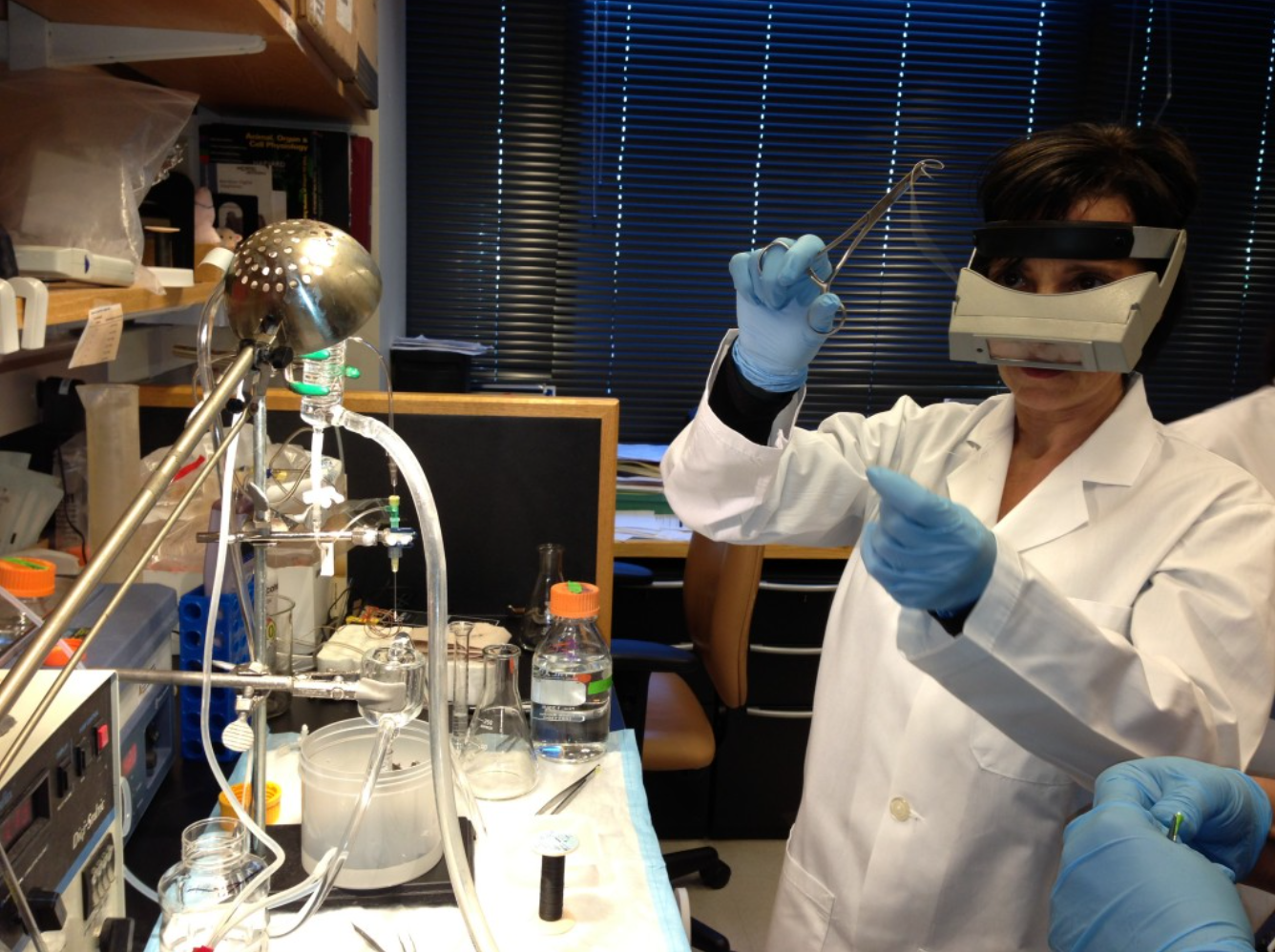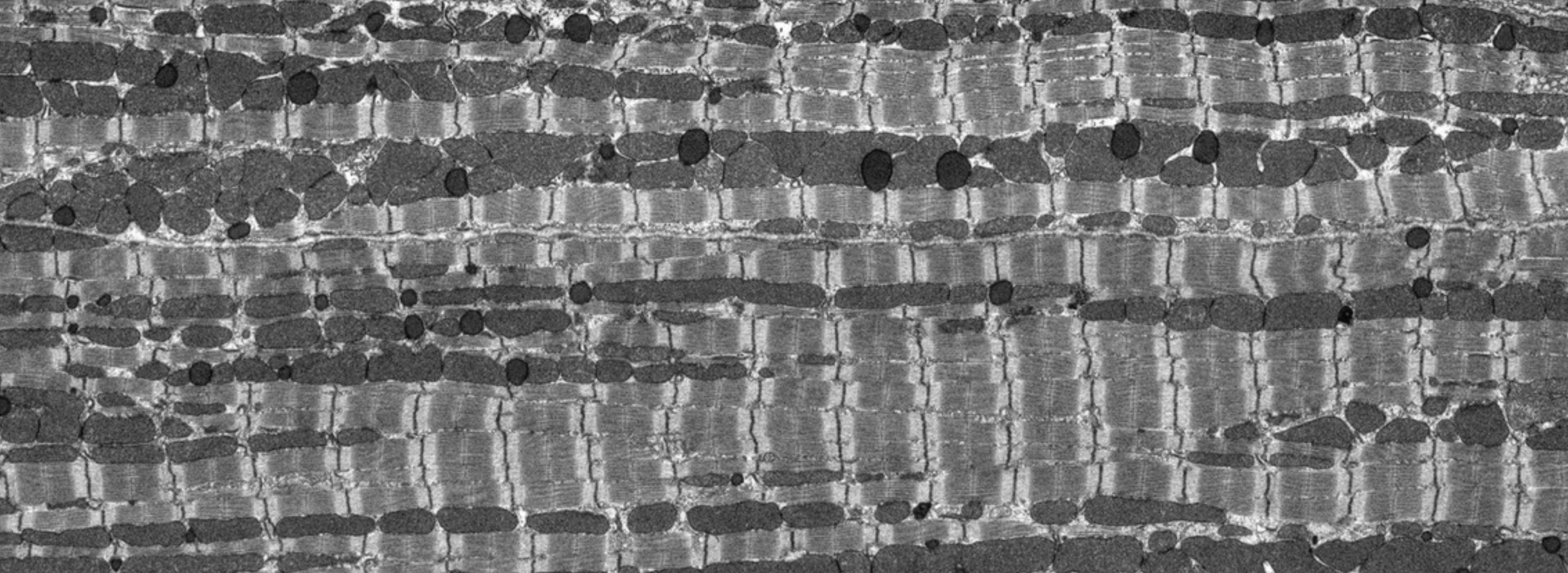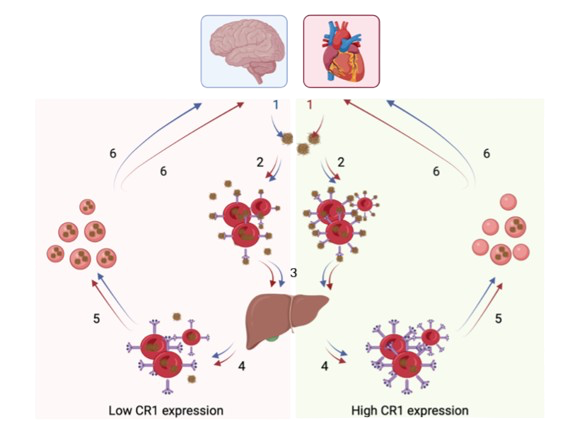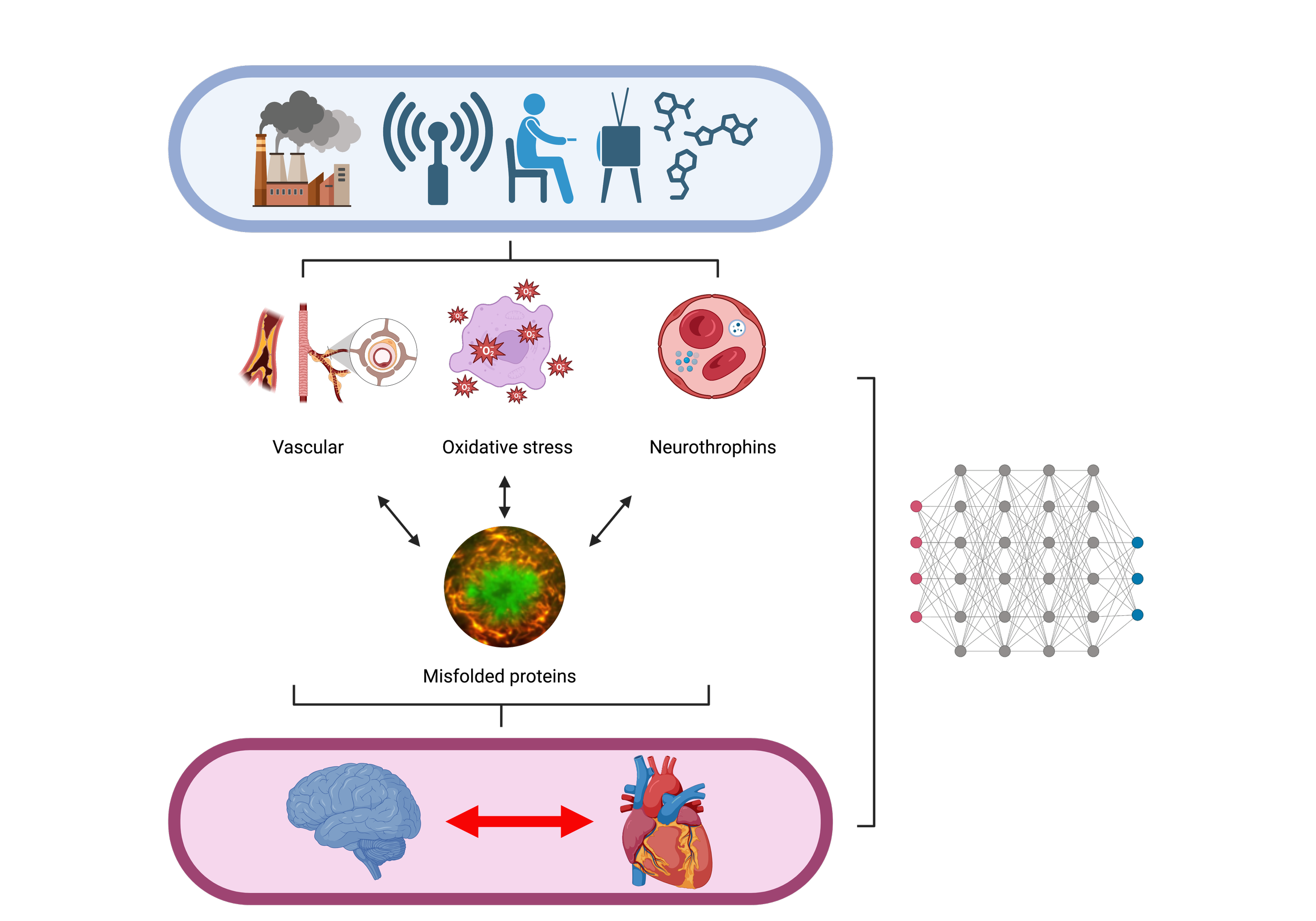
Our lab focuses on basic cardiac muscle pathophysiology and translational research.
We aim to understand the pathogenesis of cardiomyopathies and Heart Failure as an Alzheimer’s Disease of the heart.
The lab utilizes interdisciplinary approaches: in-vitro and in-vivo physiology, molecular biology, imaging, biophysical and structural chemistry.
Some of our projects
Red Blood Cells shuttle beta-amyloid between brain and heart: implications for the pathogenesis and the progression of Alzheimer's and Cardiomyopathy
The purpose of this application is to investigate the role of complement, circulating red blood cells (RBCs), and red cell-derived extracellular vesicles (EVs) in the pathogenesis of Alzheimer’s disease and the crosstalk between the central nervous system and the peripheral tissue. We will use in-vitro and in-vivo assays, human tissue samples, and a mouse animal model to test our hypothesis.
Mechanisms of pollution exposure-induced tissue functional and pathological changes in a mouse model of Alzheimer's Disease
Exposure to ambient pollution is responsible for more than 13 million deaths annually (World Health Organization) and it has been associated with cardiovascular morbidity and mortality, and with poorer cognitive function in the aging population. Whether individually, Alzheimer's dementia and heart failure are a growing plague worldwide, the recognition of their combinatory triggers and potential coexistence is an alarming prospect. We explored the role and mechanisms by which air pollution induces the development and progression of brain and heart diseases.
Mechanisms of noise exposure-induced tissue functional and pathological changes in a mouse model of Alzheimer's Disease
Air pollution (especially particulate matter – PM) and traffic noise are major and intertwined environmental risks. They elevate the risk of cardiovascular, cerebrovascular, mental, and metabolic diseases. Air pollution and traffic noise generally contribute to chronic non-communicable diseases (NCDs) and the former also to premature mortality. Within the MARKOPOLO consortium we test how traffic noise synergistically affect heart and brain health. This will help improve safety rules and test how well risk-reduction strategies work.
Molecular links between Alzheimer's Disease and Cardiomyopathy at the Clinical level
Patients with Alzheimer's Disease and patients with Heart failure (and a control group free from both the previously mentioned conditions) will be evaluated with cardiac and neuropsychological assessments, to investigate the relationship between the two conditions. The study includes samples collection for novel biomarkers discovery.







